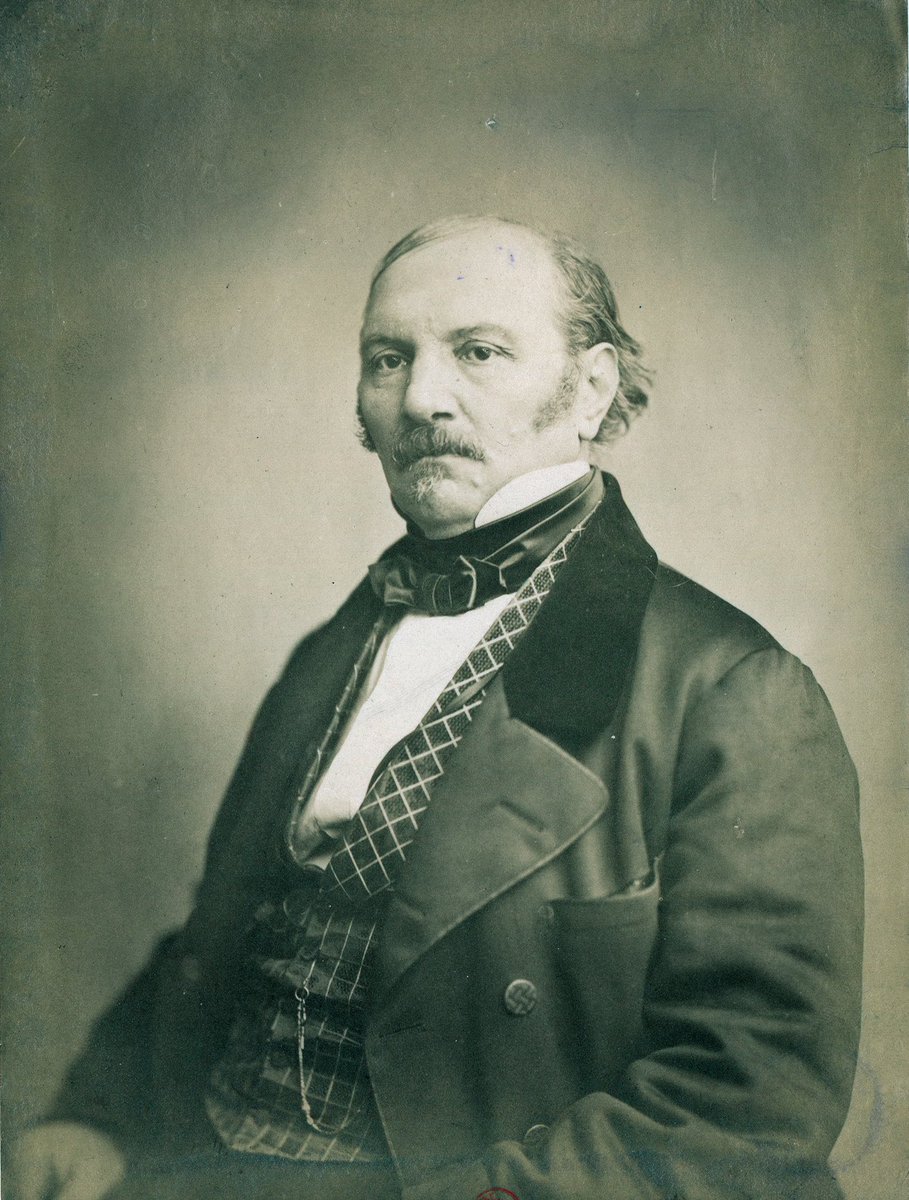Important in this convo is how race and class informed the reception of Espiritismo in Puerto Rico versus Santeria: in short, historically, white, upper class folks were allowed to be “spiritual” while Black and lower class folks were decried as “demonic”/“cults.”
[thread] https://twitter.com/afrolatinoed/status/1282018172162408448">https://twitter.com/afrolatin...
[thread] https://twitter.com/afrolatinoed/status/1282018172162408448">https://twitter.com/afrolatin...
Spiritism developed in 19th century France from the work of Allan Kardec who—connecting to ideas of magnetism and spiritualism present at the time—tried to develop a “scientific” way of connecting with the spiritual, non-material, realm, including the dead.
White, upper class Puerto Ricans who travelled to France in the mid to late 1800s for school and work engaged the work of Kardec, and brought it back to the island. Espiritismo developed among elites who gathered for ceremonies, readings, seances.
Santeria and other African Diasporic Traditions were already extant in the Caribbean by the time Espiritismo arrived. As West Africans were forced to the Americas through enslavement, they negotiated their faith practices against/alongside dominant faiths (eg Catholicism).
In Puerto Rico, many Espiritistas made explicit that they were not Santerxs—who were “doing magic,” “lower class,” “backwards,” “cultish” in contrast to Spiritist practices which were “scientific” (this was the progressive era, science had a lot of currency as “progress”).
As the 20th century progressed, Spiritist practices began to be incorporated by lower class whites as well as Black folk in Puerto Rico. New practices emerged such as Espiriteria which incorporated elements of Santeria and Espiritismo which white upper class Espiritistas decried.
All this occurred while the dominant religious practices and institutions in the island were in flux as white, US Protestant missionaries flooded the island and established schools, hospitals, and churches. http://www.enclavemag.com/colonial-gospel-puerto-rico/">https://www.enclavemag.com/colonial-...
The point I wish to highlight is that white, upper class elites tried to control who could engage the spirits. When Black and lower class people’s embodied traditions where the spirits were central, they were attacked as “backwards” and “unscientific.”
Any conversation about race and spirituality/spirit engaged religiousity related to Walter Mercado needs to, in my view, wrestle with this history. Because there is a history in Puerto Rico (and Latin America) around which bodies and what classes were allowed to be “spiritual.”
Almost forgot ( @emoprofessor’s quote thread reminded me) I got further reading for y’all!
A *classic* (which Alyssa also cited) is Raquel Romberg’s *Withcraft and Welfare.* In it, Romberg analyzes how PR brujxs negotiate religion, markets, governments. https://books.google.com/books/about/Witchcraft_and_Welfare.html?id=5jPlDAAAQBAJ">https://books.google.com/books/abo...
A *classic* (which Alyssa also cited) is Raquel Romberg’s *Withcraft and Welfare.* In it, Romberg analyzes how PR brujxs negotiate religion, markets, governments. https://books.google.com/books/about/Witchcraft_and_Welfare.html?id=5jPlDAAAQBAJ">https://books.google.com/books/abo...
Another great resource, which is one of my favorite books ever, is Reinaldo Román’s *Governing Spirits.* Román examines newspapers to look at how issues of spirituality were arbitrated under US colonialism. A lot of this thread stems from Román’s work. https://books.google.com/books/about/Governing_Spirits.html?id=WXdiDNouyUYC">https://books.google.com/books/abo...
Another classic is Olmos and Paravisini-Gebert’s *Creole Religions of the Caribbean* which offers and introduction to many of the African Diasporic Religions that developed in the Caribbean. https://books.google.com/books/about/Creole_Religions_of_the_Caribbean.html?id=fAzYsAsJXDAC">https://books.google.com/books/abo...
Edmonds and Gonzalez’s text offers another introduction to Caribbean religions with a particularly thorough examination of Creolization Theory and how it can potentially help enflesh, yet often obfuscates, Black religious traditions in the Caribbean. https://books.google.com/books/about/Caribbean_Religious_History.html?id=oFQ65RzBm5wC">https://books.google.com/books/abo...
Finally, for now, is Sam Cruz’s *Masked Africanisms* which explores how African Diasporic Religions are still operative in the practices of many Puerto Rican’s—even those who denounce and decry African Diasporic Religions as they center Christianity. https://books.google.com/books/about/Masked_Africanisms.html?id=6CnOAAAACAAJ">https://books.google.com/books/abo...
Post-script: I’m glad @afrolatinoed opened this convo and want to re-center what @BlancaVNYC said here. Wrestling with/historicizing Mercado and what systems/histories allowed him to be transgressive in the ways he was helps us “understand our world.” https://twitter.com/blancavnyc/status/1282310834467885060?s=21">https://twitter.com/blancavny...
As we push for a world that is more just and more free we can *wrestle* with the ways Mercado was a blessing and a staple for so many *and* was contextualized in a system that allowed him to be (even as he transgressed). Understanding those systems/tensions helps us grow.
Post-post-script: I should note that I have a personal stake in this convo. In my own Puerto Rican family I have white Espiritistas and Black/Brown Santerxs. And believe me when I tell you the legacies of racism/anti-Blackness spiritualized in the former persists.
Professor @larrylafountain helpfully adds this resource to the list to analyze queerness in relation to Espiritismo, Santeria, and Mercado
https://twitter.com/larrylafountain/status/1282374832164937728?s=21">https://twitter.com/larrylafo... https://twitter.com/larrylafountain/status/1282374832164937728">https://twitter.com/larrylafo...
https://twitter.com/larrylafountain/status/1282374832164937728?s=21">https://twitter.com/larrylafo... https://twitter.com/larrylafountain/status/1282374832164937728">https://twitter.com/larrylafo...

 Read on Twitter
Read on Twitter


